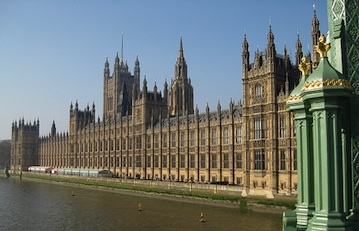A campaign sparked by the ‘devastating’ consequences of ‘shattered’ retirement plans has nearly enough support to trigger a debate in Parliament.
A petition against the ‘unfair burden’ on for 1950s women arising from transitional state pension arrangements has over 96,000 signatures.
At 100,000 signatures, it will be considered for Parliamentary debate. The Government has already issued a written response.
The petition, created by Celia Johnson, stated: “The Government must make fair transitional arrangements for all women born on or after 6th April 1951 who have unfairly borne the burden of the increase to the State Pension Age. Hundreds of thousands of women have had significant changes imposed on them with a lack of appropriate notification.
“The 1995 Conservative Government’s Pension Act included plans to increase women’s SPA to 65, the same as men’s.
“Women Against State Pension Inequality, agree with equalisation, but don’t agree with the unfair way the changes were implemented – with little/no personal notice (1995/2011 Pension Acts), faster than promised (2011 Pension Act), and no time to make alternative plans. Retirement plans have been shattered with devastating consequences.”
State Pension age changes were first made in 1995 and all women affected have been directly contacted following the changes, the Government said, adding that there were no plans to alter State Pension age arrangements for this group.
The policy decision to increase women’s State Pension age was designed to remove the inequality between men and women, the Government said. The cost of prolonging this would be several billions of pounds, it said.
Officials from the DWP said that Parliament had “extensively debated the issue” and listened to all arguments both for and against the acceleration of the timetable to remove the inequality. The decision was approved by Parliament in 2011 and there was “no new evidence to consider”, the Government said.
The official response read: “The Government will not be revisiting the State Pension age arrangements for women affected by the 1995 or 2011 Acts. The Government carried out extensive analysis of the impacts of bringing forward the rise to 66 when legislating for the change.
“The decision to amend the timetable originally set out in the bill, to cap the maximum increase at 18 months rather than 2 years, was informed by this analysis.
“All women affected by faster equalisation will reach State Pension age after the introduction of the new State Pension. The new State Pension will be more generous for many women who have historically done poorly under the current, two-tier system - largely as a result of lower average earnings and part-time working.
“Around 650,000 women reaching State Pension age in the first ten years will receive an average of £8 per week (in 2014/15 earnings terms) more due to the new State Pension valuation of their National Insurance record.”
The 2014 Act provides for a 6-yearly review. The first review will conclude by May 2017 and will consider, amongst a number of other factors, the impact of State Pension age change on women.

